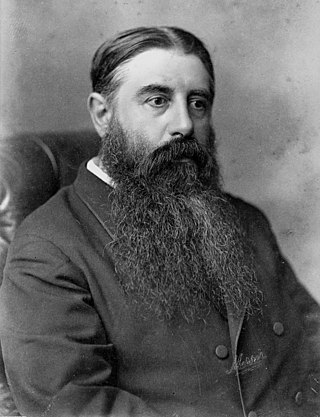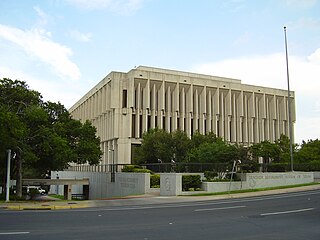
A notary public of the common law is a public officer constituted by law to serve the public in non-contentious matters usually concerned with general financial transactions, estates, deeds, powers-of-attorney, and foreign and international business. A notary's main functions are to validate the signature of a person ; administer oaths and affirmations; take affidavits and statutory declarations, including from witnesses; authenticate the execution of certain classes of documents; take acknowledgments ; provide notice of foreign drafts; provide exemplifications and notarial copies; and, to perform certain other official acts depending on the jurisdiction. Such transactions are known as notarial acts, or more commonly, notarizations. The term notary public only refers to common-law notaries and should not be confused with civil-law notaries.

A trust is a legal relationship in which the holder of a right gives it to another person or entity who must keep and use it solely for another's benefit. In the Anglo-American common law, the party who entrusts the right is known as the "settlor", the party to whom the right is entrusted is known as the "trustee", the party for whose benefit the property is entrusted is known as the "beneficiary", and the entrusted property itself is known as the "corpus" or "trust property". A testamentary trust is created by a will and arises after the death of the settlor. An inter vivos trust is created during the settlor's lifetime by a trust instrument. A trust may be revocable or irrevocable; an irrevocable trust can be "broken" (revoked) only by a judicial proceeding.

Sir Julius Vogel was the eighth premier of New Zealand. His administration is best remembered for the issuing of bonds to fund railway construction and other public works. He was the first Jewish prime minister of New Zealand. Historian Warwick R. Armstrong assesses Vogel's strengths and weaknesses:
Vogel's politics were like his nature, imaginative – and occasionally brilliant – but reckless and speculative. He was an excellent policymaker but he needed a strong leader to restrain him....Yet Vogel had vision. He saw New Zealand as a potential 'Britain of the South Seas', strong both in agriculture and in industry, and inhabited by a large and flourishing population.
In law, conveyancing is the transfer of legal title of real property from one person to another, or the granting of an encumbrance such as a mortgage or a lien. A typical conveyancing transaction has two major phases: the exchange of contracts and completion.

James Patrick Anderton was a New Zealand politician who led a succession of left-wing parties after leaving the Labour Party in 1989.

Sir Edward William Stafford served as the third premier of New Zealand on three occasions in the mid 19th century. His total time in office is the longest of any leader without a political party. He is described as pragmatic, logical, and clear-sighted.
Grant Gillon is a former New Zealand politician. He was a member of parliament between 1996 and 2002, representing the Alliance Party, has held a number of seats in local government. He previously served on the Devonport-Takapuna Local Board representing Shore Action.
A trust company is a corporation that acts as a fiduciary, trustee or agent of trusts and agencies. A professional trust company may be independently owned or owned by, for example, a bank or a law firm, and which specializes in being a trustee of various kinds of trusts.

In the law of inheritance, wills and trusts, a disclaimer of interest is an attempt by a person to renounce their legal right to benefit from an inheritance or through a trust. "If a trustee disclaims an interest in property that otherwise would have become trust property, the interest does not become trust property."

Public Storage is an American international self storage company headquartered in Glendale, California, that is run as a real estate investment trust (REIT). It is the largest brand of self-storage services in the US. In 2008, it was the largest of four publicly traded storage REITs. There are more than 2,200 Public Storage self-storage locations in the US, Canada and Europe. It also owns 42 percent of an office parks subsidiary, sells packing supplies, and provides other services. As a REIT, it is owned by real estate investors, who receive more than 90 percent of the company's profits as a return-on-investment.
Meaning of public trustee The public trustee is an office established pursuant to national statute, to act as a trustee, usually when a sum is required to be deposited as security by legislation, if courts remove another trustee, or for estates if either no executor is named by will or the testator elects to name the public trustee.

Captain Frederick Wollaston Hutton was an English-born New Zealand scientist who applied the theory of natural selection to explain the origins and nature of the natural history of New Zealand. Whilst an army officer, he embarked on an academic career in geology and biology, to become one of the most able and prolific nineteenth century naturalists of New Zealand.
A probate court is a court that has competence in a jurisdiction to deal with matters of probate and the administration of estates. In some jurisdictions, such courts may be referred to as Orphans' Courts or courts of ordinary. In some jurisdictions probate court functions are performed by a chancery court or another court of equity, or as a part or division of another court.

Teacher Retirement System of Texas (TRS) is a public pension plan of the State of Texas. Established in 1937, TRS provides retirement and related benefits for those employed by the public schools, colleges, and universities supported by the State of Texas and manages a $180 billion trust fund established to finance member benefits. More than 1.6 million public education and higher education employees and retirees participate in the system. TRS is the largest public retirement system in Texas in both membership and assets and the sixth largest public pension fund in America. The agency is headquartered at 1000 Red River Street in the capital city of Austin.
Co-op Legal Services offers legal advice, and provides legal services for Family Law, Divorce, Will Writing, Conveyancing, Employment Law, Probate and Personal Injury.
Constructive trusts in English law are a form of trust created by the English law courts primarily where the defendant has dealt with property in an "unconscionable manner"—but also in other circumstances. The property is held in "constructive trust" for the harmed party, obliging the defendant to look after it. The main factors that lead to a constructive trust are unconscionable dealings with property, profits from unlawful acts, and unauthorised profits by a fiduciary. Where the owner of a property deals with it in a way that denies or impedes the rights of some other person over that property, the courts may order that owner to hold it in constructive trust. Where someone profits from unlawful acts, such as murder, fraud, or bribery, these profits may also be held in constructive trust. The most common of these is bribery, which requires that the person be in a fiduciary office. Certain offices, such as those of trustee and company director, are always fiduciary offices. Courts may recognise others where the circumstances demand it. Where someone in a fiduciary office makes profits from their duties without the authorisation of that office's beneficiaries, a constructive trust may be imposed on those profits; there is a defence where the beneficiaries have authorised such profits. The justification here is that a person in such an office must avoid conflicts of interest, and be held to account should he fail to do so.

The former Public Trust Building in Christchurch, New Zealand, is a heritage building designed by leading architect Cecil Wood that was threatened with demolition. It is now being restored for a range of office and hospitality tenants.
The Third Fox Ministry was a responsible government which held power in New Zealand from June 1869 to September 1872. Although William Fox was the head of the government, he was never appointed Premier as that office had yet to be established, although he did resign the office at the end of his tenure. The Ministry was also known as the Fox-Vogel Ministry as most of the agenda was set by the Treasurer, while Fox busied himself with administrative affairs and moral crusades such as the attempted introduction of local option polls for liquor licensing.
The Māori Trustee is a statutory corporation sole with perpetual succession in New Zealand. The Trustee administers, as trustee or agent, Māori land trusts and other Māori entities.









